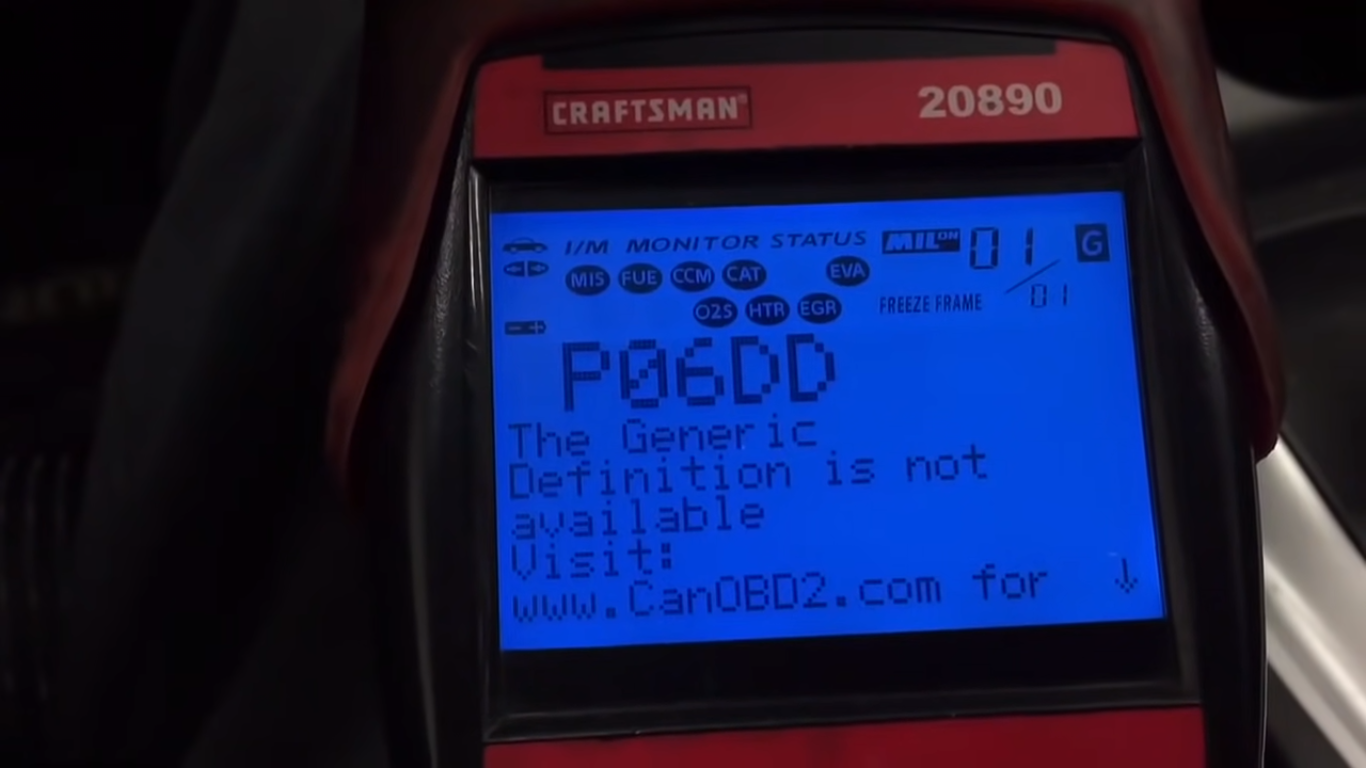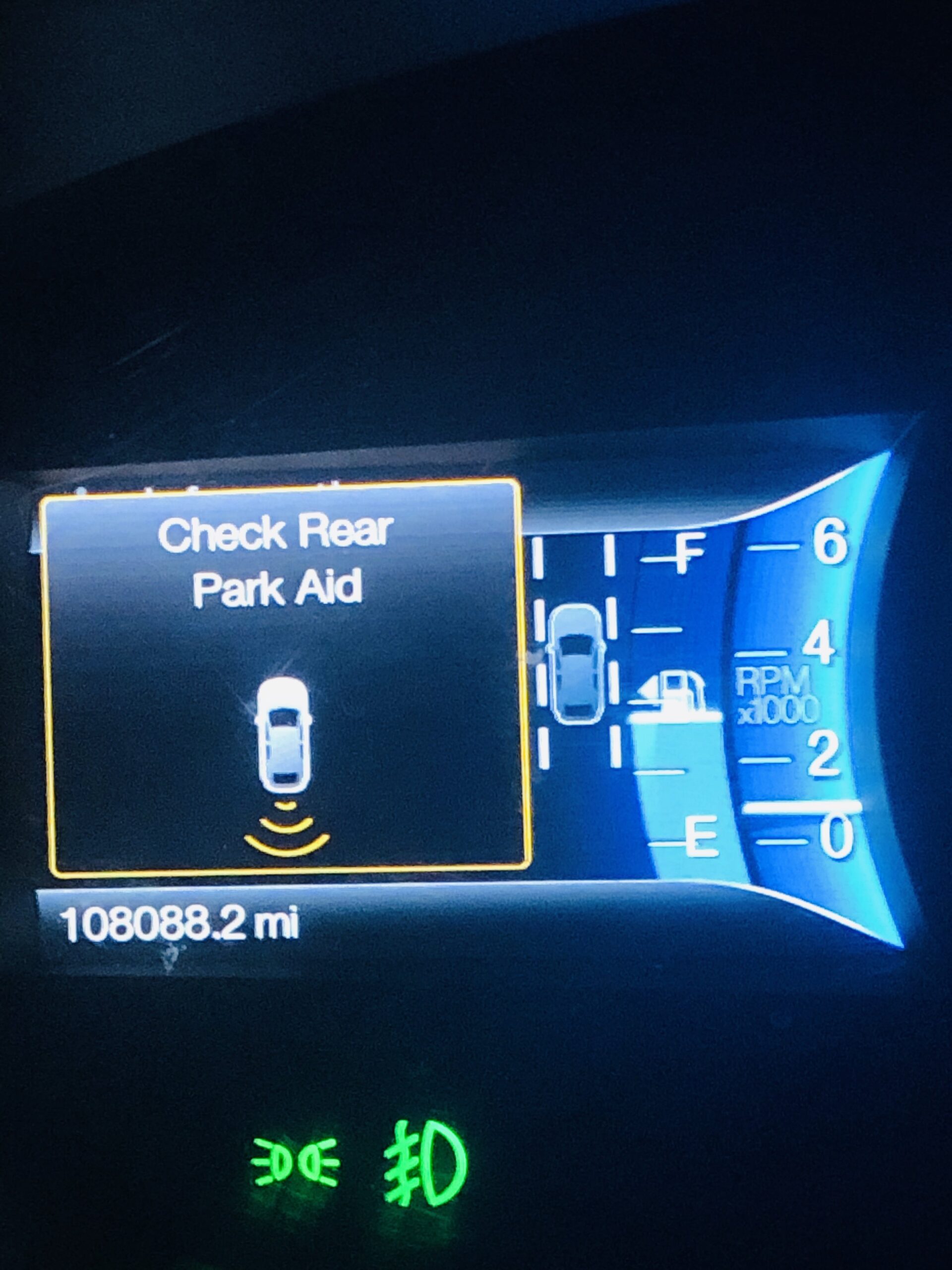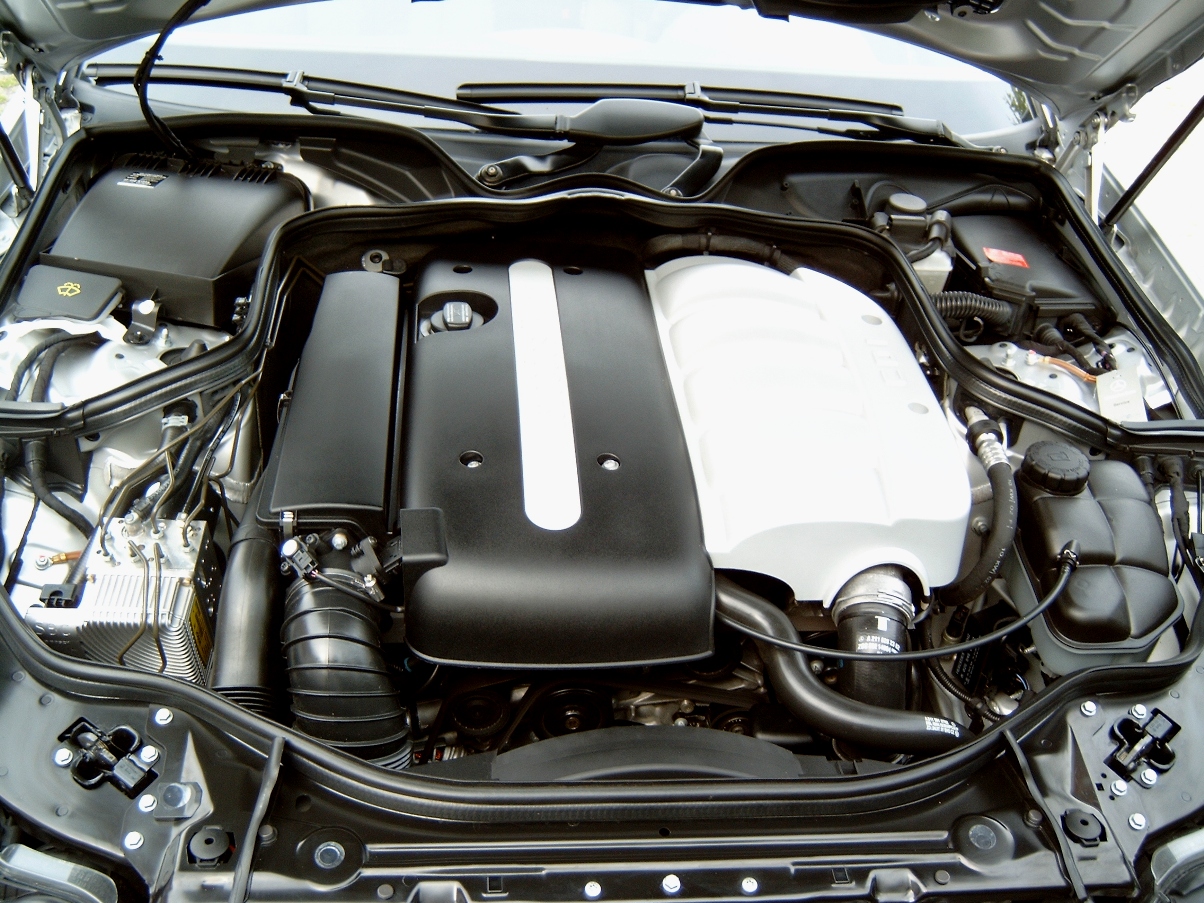If you own an Audi, you may have experienced a scary situation where your car starts shaking and the EPC light comes on.
EPC stands for Electronic Power Control, and it indicates a problem with the engine management system.
This can affect the performance and reliability of your Audi, and it can also be dangerous if you are driving.
In this article, we will explain what causes the Audi EPC light car shaking problem, and what you can do to fix it.
We will also provide some practical tips on how to prevent this issue from happening again.
Whether you are a new or a long-time Audi owner, this article will help you understand and deal with the Audi EPC light car shaking problem effectively.
What Does EPC Mean on Audi?
The acronym “EPC” in the context of Audi typically stands for “Electronic Power Control.” The Electronic Power Control system is a technology used in Audi vehicles to manage and control the engine’s electronic components and optimize performance.
When there is an issue with the Electronic Power Control system, a warning light with the letters “EPC” may illuminate the vehicle’s dashboard, indicating that there is a fault or malfunction that requires attention.
If you see the EPC warning light on your Audi, it’s advisable to have the vehicle inspected by a qualified technician or take it to an authorized Audi service center to diagnose and address the specific issue causing the warning.
Ignoring such warnings may lead to reduced performance or potential damage to the vehicle.
Important: How To Fix EPC Light On Audi q5: Step By Step Guide
What causes the EPC light to come on Audi?
The EPC (Electronic Power Control) light in Audi vehicles can come on due to various reasons, and it serves as a warning indicator that there is a potential issue with the electronic powertrain control system. Some common reasons for the EPC light to illuminate include:
- Throttle Body Issues: Problems with the throttle body, such as a malfunctioning throttle position sensor or a dirty throttle body, can trigger the EPC light.
- Mass Airflow Sensor (MAF) Malfunction: Issues with the MAF sensor, which measures the amount of air entering the engine, can lead to EPC light activation.
- Faulty Accelerator Pedal: A malfunctioning accelerator pedal sensor or related components can cause the EPC light to come on.
- Electronic Throttle Control (ETC) System Issues: Problems with the electronic throttle control system, including wiring issues or sensor malfunctions, can trigger the EPC warning.
- Engine Control Module (ECM) or Powertrain Control Module (PCM) Problems: Malfunctions or issues with the engine control module or powertrain control module can result in the EPC light activation.
- Vacuum Leaks: Any vacuum leaks in the intake system can affect the engine’s performance and trigger the EPC warning.
- Faulty Brake Light Switch: In some cases, a malfunctioning brake light switch can cause the EPC light to come on.
- Issues with the Fuel System: Problems with the fuel pump, fuel injectors, or fuel pressure can lead to EPC warnings.
- Faulty Wiring or Connectors: Poor connections, damaged wiring, or electrical issues in the system can trigger the EPC light.
How To Fix an EPC Light on Audi?
Fixing the EPC (Electronic Power Control) light on an Audi typically requires identifying and addressing the specific issue that triggered the warning. Here are some general steps you can take if you encounter the EPC light:
-
Check for Obvious Issues
Ensure that the gas cap is properly secured.
Look for any disconnected or damaged wiring in the engine bay.
Examine the throttle body and related components for cleanliness and proper functioning.
-
Restart the Vehicle
Sometimes, the EPC light may come on due to a temporary glitch. Turn off the engine, wait for a few minutes, and then restart the vehicle to see if the light clears.
-
Inspect Fluid Levels
Check essential fluids such as engine oil, coolant, and transmission fluid to ensure they are at the proper levels.
-
Address Brake Light Switch Issues
If the brake light switch is suspected to be the cause, check the brake lights to see if they are functioning correctly. Replace the switch if necessary.
-
Scan for Fault Codes
Use a diagnostic scanner to retrieve fault codes from the vehicle’s onboard computer. These codes can provide specific information about the issue.
-
Throttle Body Cleaning
Clean the throttle body and throttle plate to remove any carbon deposits. A dirty throttle body can sometimes cause EPC issues.
-
Inspect Sensors
Check sensors such as the Mass Airflow Sensor (MAF) and the throttle position sensor for proper operation. Replace or clean them as needed.
-
Address Wiring and Connector Issues
Inspect the wiring harness and connectors for damage or loose connections. Repair or replace any damaged components.
Is it safe to drive with an EPC light on Audi?
Driving with the EPC (Electronic Power Control) light on in your Audi is generally not recommended. The EPC light indicates a potential issue with the electronic powertrain control system, and the vehicle’s performance may be compromised. While the severity of the issue can vary, here are some reasons why it’s advisable to address the EPC warning promptly:
Reduced Performance
The EPC light often comes on when there is a problem affecting the engine or electronic control systems. Driving with the EPC light illuminated may result in reduced engine performance, poor acceleration, and compromised overall vehicle drivability.
Risk of Further Damage
Ignoring the EPC warning and continuing to drive the vehicle may lead to further damage to engine components or other essential systems. Addressing the issue promptly can prevent more extensive and costly repairs.
Safety Concerns
Some EPC-related issues can impact the safety systems of the vehicle. For example, a faulty throttle control system might affect the response of the accelerator pedal, increasing the risk of accidents.
Potential for Stalling
In some cases, vehicles with EPC issues may stall unexpectedly, leading to unsafe driving conditions, especially in traffic or at higher speeds.
If the EPC light comes on while you are driving, it’s recommended to take the following steps:
- Reduce Speed
Drive at a moderate speed and avoid sudden acceleration or deceleration.
- Avoid Heavy Loads
If possible, avoid carrying heavy loads or towing until the issue is resolved.
- Get to a Safe Location
If you experience a significant loss of power or notice unusual symptoms, safely pull over to the side of the road and turn off the engine.
Also Read: Audi Parking Brake Malfunction Reset: Easy Steps To Fix It!
Why is my Audi shaking?

Audi vehicles, like any other cars, can experience shaking or vibrations for various reasons. The causes of shaking can range from relatively minor issues to more significant problems. Here are some common reasons why your Audi might be shaking:
Wheel or Tire Issues
- Wheel Imbalance: Uneven distribution of weight on the wheels can cause vibrations. This can be due to imbalanced tires or wheels.
- Tire Issues: Uneven tire wear, damaged tires, or a bulge in a tire can lead to vibrations.
Brake Problems
- Warped Brake Rotors: Warped or unevenly worn brake rotors can cause vibrations when braking.
- Brake Caliper Issues: Sticking or malfunctioning brake calipers can also result in vibrations.
Suspension Components
- Worn Suspension Parts: Worn-out shocks, struts, or other suspension components can lead to vibrations, especially at certain speeds or during specific driving conditions.
- Broken or Damaged Control Arms: Damage to control arms or other suspension components can cause shaking.
Drivetrain Issues
- CV Joint Problems: Worn or damaged Constant Velocity (CV) joints can result in vibrations, especially during acceleration.
- Driveshaft Issues: Imbalances or damage to the driveshaft can lead to vibrations.
Engine Issues
- Misfiring Cylinder: An engine misfire, caused by issues such as faulty spark plugs or a malfunctioning ignition coil, can result in shaking.
- Engine Mounts: Damaged or worn engine mounts may allow excessive movement, leading to vibrations.
Exhaust System Problems
- Exhaust Component Damage: A damaged or loose exhaust system component, such as a heat shield or muffler, can cause vibrations.
Wheel Bearing Failure
- Worn Wheel Bearings: A failing wheel bearing can cause vibrations, particularly at certain speeds.
Alignment Issues
- Poor Wheel Alignment: Improper wheel alignment can lead to uneven tire wear and vibrations.
Can bad spark plugs cause EPC light?
Bad spark plugs can contribute to engine performance issues, and in some cases, they might indirectly lead to the activation of the EPC (Electronic Power Control) light. The EPC light typically illuminates when there is a fault or malfunction in the electronic powertrain control system. While bad spark plugs themselves may not directly trigger the EPC light, their impact on engine performance can lead to related issues that trigger the warning. Here’s how bad spark plugs may be involved:
Engine Misfire
Bad spark plugs can cause an engine to misfire. When a cylinder misfires, it disrupts the normal operation of the engine and may lead to uneven power delivery. If the engine control module (ECM) detects persistent misfires, it might trigger the EPC light to alert the driver of a potential problem.
Sensor Readings
The engine control module continuously monitors various sensors, including those related to combustion and engine performance. If bad spark plugs contribute to abnormal sensor readings, the ECM may interpret this as a fault and illuminate the EPC light.
Impact on Fuel Mixture
Faulty spark plugs can affect the air-fuel mixture in the combustion chamber. This, in turn, can impact the efficiency of combustion and lead to poor engine performance. The ECM may detect these anomalies and trigger the EPC light.
If you suspect that bad spark plugs are causing issues with your Audi and potentially triggering the EPC light, it’s crucial to address the spark plug problem. Consider the following steps:
-
Inspect and Replace Spark Plugs
Check the condition of your spark plugs. If they are fouled, worn, or damaged, replace them with the recommended spark plugs for your Audi model.
-
Check Ignition System
Inspect the ignition system components, including ignition coils, spark plug wires, and other related parts. Ensure that everything is in good working order.
-
Reset EPC Light
After addressing the spark plug issue, you may need to reset the EPC light using a diagnostic tool. In some cases, the light may go off on its own after the underlying issue is resolved.
Audi EPC Light Car Won’t Start
If your Audi EPC (Electronic Power Control) light is on, and the car won’t start, it indicates a significant issue that requires immediate attention. The EPC light often points to a fault in the electronic control systems that manage the engine and other critical components. Here are some steps you can take:
-
Check the Basics
Ensure that the battery is in good condition, fully charged, and securely connected. A weak or dead battery can cause starting issues.
-
Inspect for Visible Issues
Check for any visible issues under the hood, such as disconnected or damaged wiring. Pay attention to components related to the electronic control systems.
-
Read Error Codes
Use an OBD-II scanner to read error codes from the vehicle’s onboard computer. The codes can provide valuable information about the specific issue causing the EPC light and starting problems.
-
Address Fuel Issues
Ensure that there is an adequate supply of fuel. Problems with the fuel system, such as a clogged fuel filter or a faulty fuel pump, can prevent the engine from starting.
-
Check for Engine Misfire
If the EPC light is related to engine misfires, inspect components such as spark plugs, ignition coils, and the fuel injection system. Replace or repair any faulty components.
-
Inspect Sensors
Check critical sensors like the Mass Airflow Sensor (MAF) and throttle position sensor for proper functioning. Replace or repair any faulty sensors.
-
Address Ignition System Issues
Problems with the ignition system, such as a malfunctioning ignition switch or starter motor, can prevent the engine from starting. Have these components inspected and replaced if necessary.
-
Throttle Body Cleaning
Clean the throttle body to ensure it is free from carbon deposits. A dirty throttle body can affect proper air intake and lead to starting issues.
-
Check for Engine Control Module (ECM) Issues
If there are issues with the ECM or other electronic control modules, they may need to be diagnosed and repaired or replaced by a qualified technician.
Conclusion
We have learned what the Audi EPC light car shaking problem means, and what solutions we can apply to fix it.
We have also seen how to prevent this issue from happening again by following some simple maintenance tips.
The Audi EPC light car shaking problem is not something to ignore, as it can affect the safety and performance of your car.
If you ever encounter this problem, you should act quickly and consult a professional mechanic if needed.
By doing so, you can ensure that your Audi remains in good condition and delivers a smooth and enjoyable driving experience.




